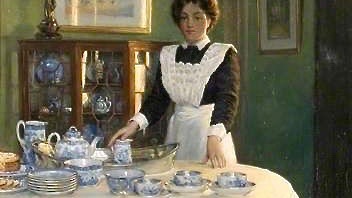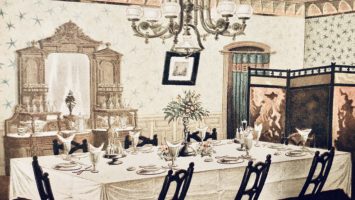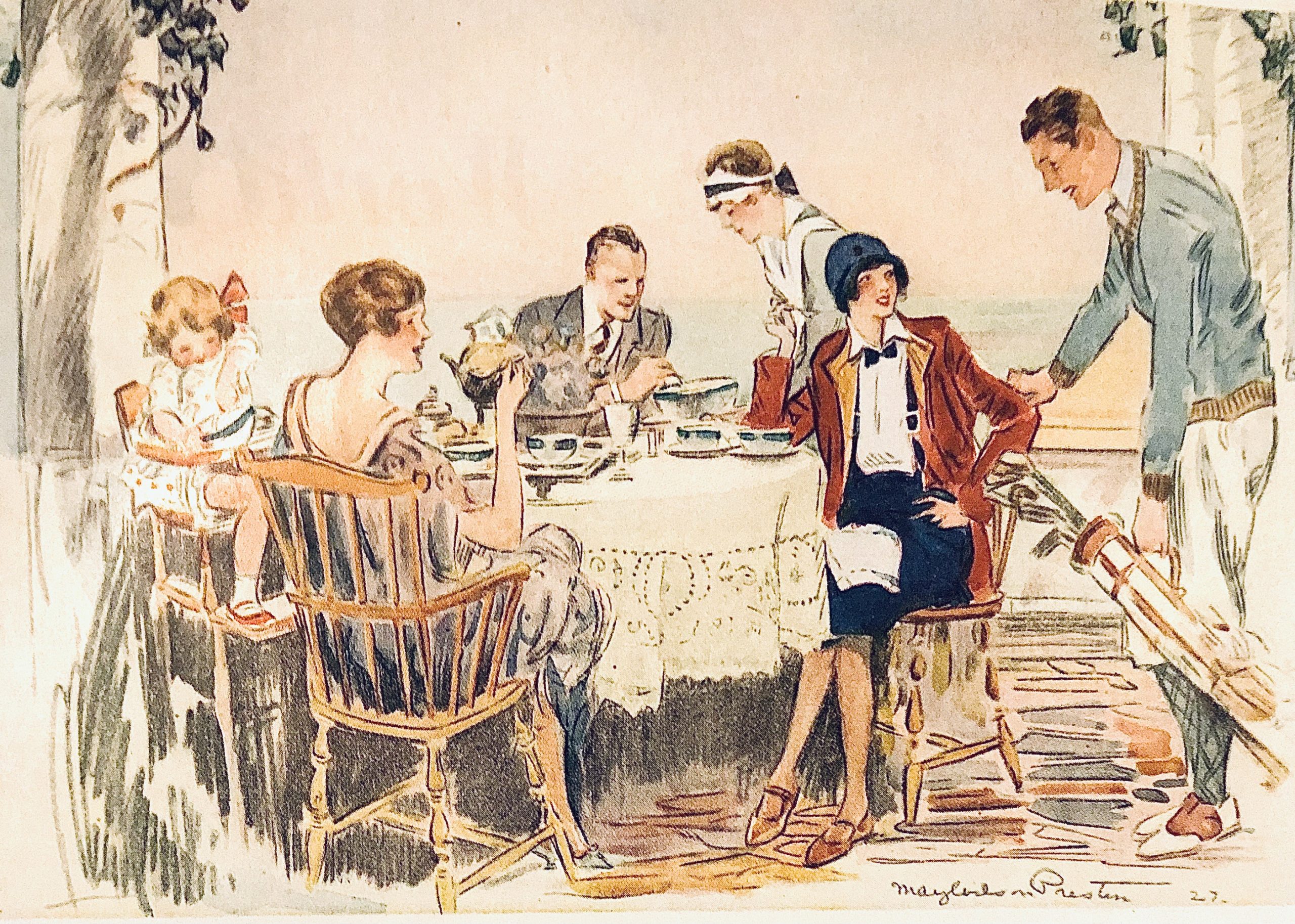“In the home where guests are frequently entertained and where the hostess holds many formal social functions, servants are essential. Every family that can afford to do so, should have one, or two, or more servants according to social requirements an the appointments of the house. They should be well instructed in their duties and they should be expected to carry them out faultlessly. Untidy, noisy, ill-trained servants reflect upon the manners and conduct of the mistress herself.”
Book of Etiquette, Lilian Eichler (1922)
By 1922 when Lilian Eichler was writing Book of Etiquette, most well-off households no longer had large staffs of servants who took care of the inhabitants needs. The middle class had risen and the upper-classes began to see their wealth shrink, consequently the number of staff shrank as well. This was combined with the end of the first world war and the rise of socialist politics, which led to changes is how the classes viewed each other. Servants expected better pay and more respect, though they often did not get it.
So, what rules did a staff live by?
“Every person entering domestic service should cultivate good manners. Everybody entering any service should cultivate them, for that matter, but nowhere is the absence of good manners more to be regretted than in the private-house staff. Here, there are certain fundamental rules which should never be ignored. Employer and employee occupy the reaction of officer and private. An employer and an officer are both placed in the position of order-giving. An employee and private are both placed int he position of order-executing. the first represent authority; the second, agents who have engaged themselves to act under the direction of that authority. Therefore respect for, and the obedience to, employer or officer are the first requisites of all good service.”
Vogue’s Book of Smart Service, 1930
I think that paragraph really sums up the state of service perfectly. The individual rules for servants mutated slowly over time. From the earliest civilizations until the apex of domestic service in the Victorian and Edwardian eras, the master and servant relationship developed and refined until the codified service of the British Country house circa 1900. That said, since every employer and their needs were different, each household’s rules were different.
Here is a basic list of rules one could expect to see in a large Victorian or Edwardian household:
“Servants were probably just as much, if not more, exploited in the eighteenth century tan the nineteenth, but the tendency to treat them as though they did not exist was a specifically nineteenth-century one”
Victorian’s At Home by Mark Girouard, 1981
Servants should not be heard, (or ideally seen) by the members of the household.
Servants should make way for members of the household, (or higher ranking staff) if ever met on the stairs.
If a member of the household speaks to you, stand still and look directly at them. Though you should not stare into their eyes or glower.
Never speak first to members of household or their guests.
Never offer an opinion.
Always confirm that you have received an order.
Never talk to another servant in the presence of the household.
Never call from one room to another.
Only the Butler may answer the bell.
Every servant must be punctual at meal times.
No gambling or swearing is allowed.
The female staff are forbidden from smoking.
Male staff should never smoke where they will be seen by the household.
No servant is to receive any visitor, family included.
No male should be in the female dormitory and vice/versa.
All breakages or damage to the house will be deducted from wages.
While all of this may seem practically draconian today, service was a sought after job and was actually considered respectable, if not desirable.
As we said, by the twenties, servants were better paid and harder to find. Indeed, in many etiquette books, one begins to see a distinct set of laws meant to protect servants being referred to. There are even mentions of contracts and “lawful arrangements” made.
In Etiquette for Gentlemen, (1920’s) staff duties are laid out as:
“To obey lawful orders within the scope o the servant’s employment.
To exercise care in the performance of his, or her, duties.
To abstain from doing that which he out not to do.”
That’s a far cry from what an Edwardian would have considered the duties of a servant only ten years before. The 20th century was a time of rapid social change and the servant / employer relationship changed with it.



